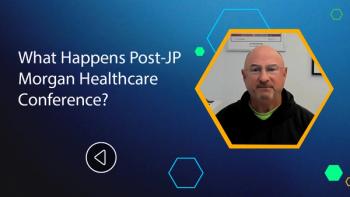
Digging Deeper Into Bayer’s ASCO GU Presentation
Iris Kuss, head of clinical development, and Jorge Ortiz, head of medical affairs, discuss the company’s recent presentation at ASCO GU.
Bayer presented data on its oncology portfolio at the 2024 ASCO GU conference, providing updates on several of its active trials and drugs. Iris Kruss, head of clinical development, and Jorge Ortiz, head of medical affairs, both spoke with Pharmaceutical Executive and went into more detail about their presentations.
Pharmaceutical Executive: What trends are you seeing in prostate cancer treatments?
Iris Kruss: Prostate cancer is still the fifth leading cause of death from cancer in men. However, the treatment landscape has significantly evolved in recent years, fueled by innovative scientific research, which has contributed to improved patient outcomes. If caught early enough, prostate cancer is very treatable.
Despite current advances in prostate cancer care, there remains a high unmet need for new treatment options that do not only delay disease progression and extend survival, but also preserve quality of life.
For us at Bayer, prostate cancer is a key focus area. We have a clear vision to become a market leader with a growing portfolio through prioritizing our research and development to address the most pressing unmet needs across different stages of the disease. Nubeqa (darolutamide) is our key portfolio growth driver in prostate cancer and has the potential to become the standard of care for prostate cancer patients from the early- to the late-stage of this disease. Nubeqa has demonstrated in the Aramis (nmCRPC) and Arasens (mHSPC) trials that it delays disease progression, extends survival and preserves quality of life. We are also investing Nubeqa in other areas of the disease and have a broad development program underway:
- Aranote (Phase III): Evaluates darolutamide plus androgen deprivation therapy (ADT) versus ADT alone for metastatic hormone-sensitive prostate cancer (mHSPC).
- Arastep (Phase III): Investigates the efficacy of darolutamide plus androgen deprivation therapy (ADT) versus ADT alone in hormone-sensitive prostate cancer, in patients with high-risk biochemical recurrence (BCR) who have no evidence of metastatic disease by conventional imaging and a positive PSMA PET/CT at baseline.
- DASL-HiCaP, ANZUP1801 (Phase III): evaluates darolutamide as an adjuvant treatment for localized prostate cancer with very high risk of recurrence.
PE: What are the most important updates from the ARASTEP trial?
Kruss: At Bayer, our first priority is ensuring as many patients as possible can benefit from and access Nubeqa® (darolutamide). The Phase 3 Arastep trial is designed to evaluate its potential in combination with ADT (androgen deprivation therapy) versus ADT alone in hormone sensitive prostate cancer, in patients with high-risk biochemical recurrence (BCR) who have no evidence of metastatic disease as measured by conventional imaging and a positive prostate-specific membrane antigen (PSMA) PET/CT at baseline. Many patients with rising PSA levels following surgery or radiation are at an increased risk of developing metastasis.
We presented a trial in progress abstract at ASCO GU, detailing the protocol for the trial and confirming that we are currently enrolling patients–as of today, 18 patients have been fully enrolled, and we look forward to welcoming more.
We’re encouraged by the growing clinical evidence demonstrating the efficacy and safety of darolutamide, with established evidence shared in nmCRPC (Aramis trial) and mHSPC (Arasens trial). Our goal is to ensure that as many patients as possible benefit from this therapy, and we continue to assess the potential of darolutamide in earlier disease stages.
PE: What are the most important updates from the REASSURE study?
Jorge Ortiz: Additional results from the US subset of the Reassure study, presented at ASCO GU evaluated safety outcomes for prostate cancer patients with bone metastases who had been treated with Xofigo (Radium-223; Ra-223) in the real-world setting. The study found that patients treated with Ra-223 who had previously received external beam radiation therapy (EBRT) did not demonstrate increased incidence of hematological toxicity compared to those who did not receive EBRT. While there was a small increase in the percentage of secondary primary malignancies among patients with prior EBRT, none of these were hematologic malignancies. The incidence of bone fractures was reported to be low overall, but slightly higher in patients with prior EBRT to the bone. Overall, these data reinforce the safety profile of XOFIGO and support its use in patients who have received EBRT.
Newsletter
Lead with insight with the Pharmaceutical Executive newsletter, featuring strategic analysis, leadership trends, and market intelligence for biopharma decision-makers.




